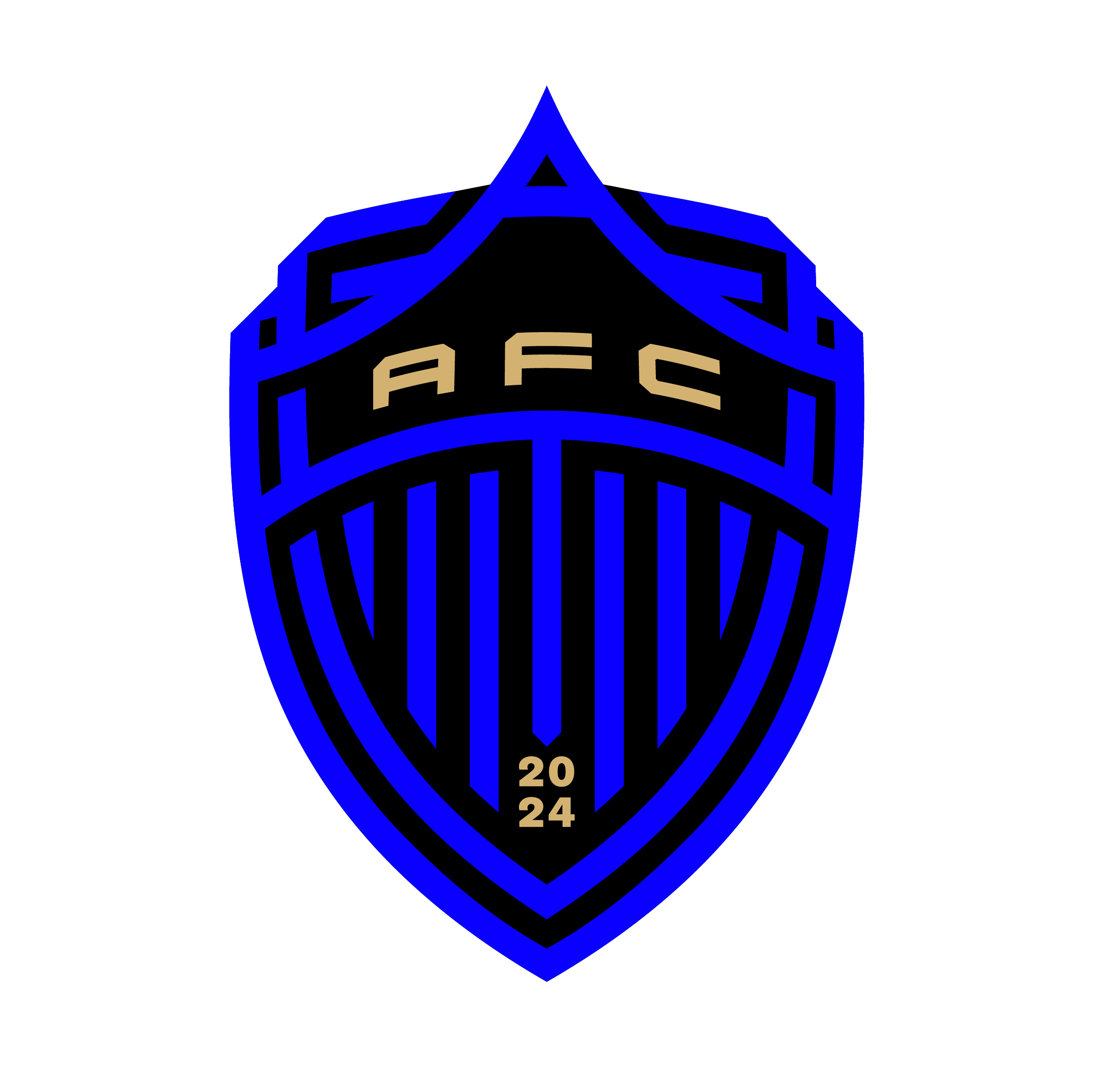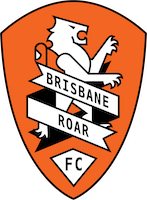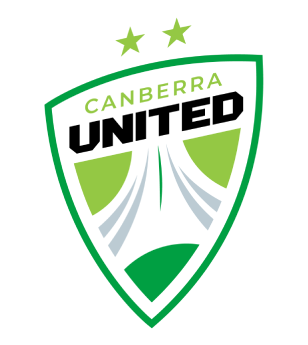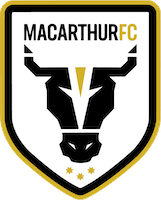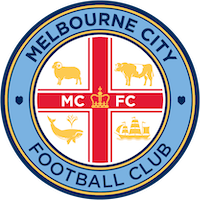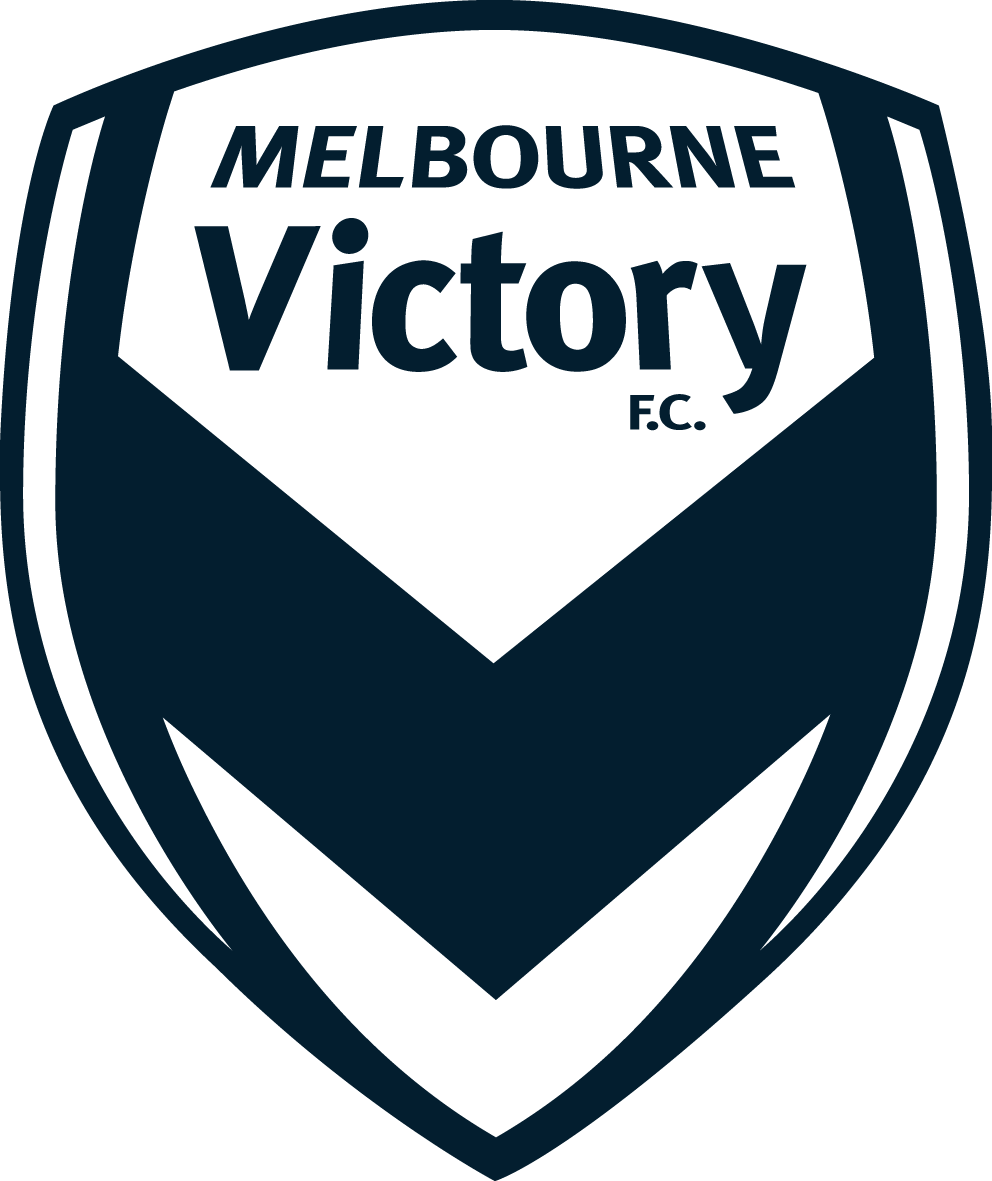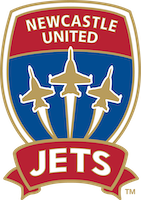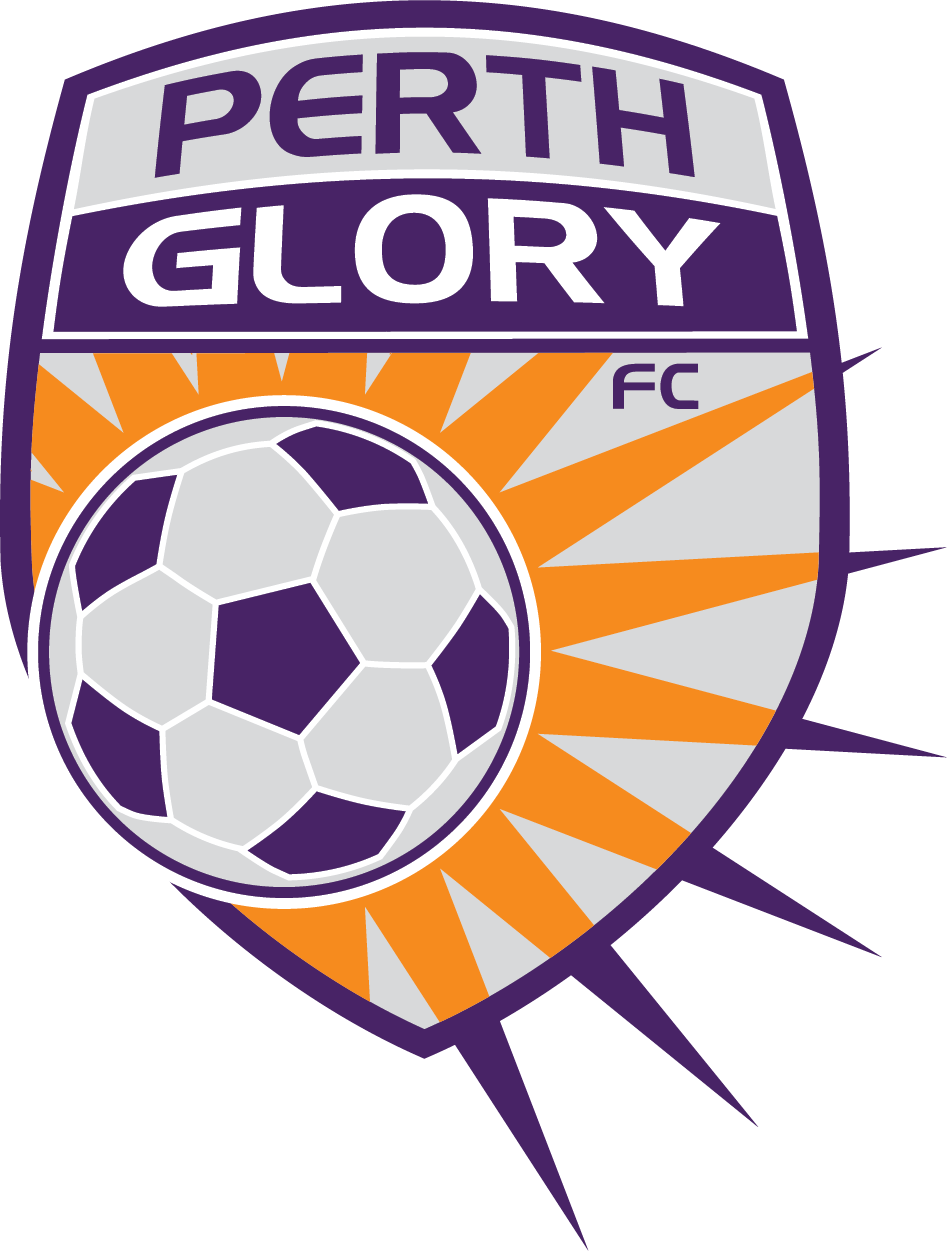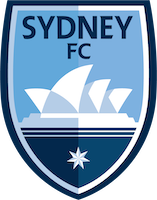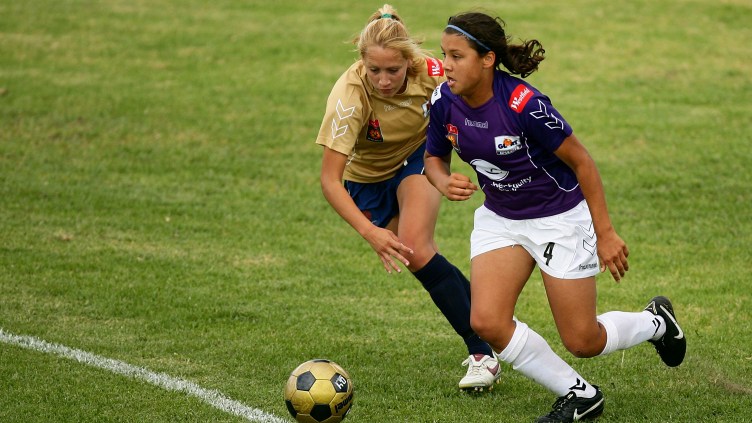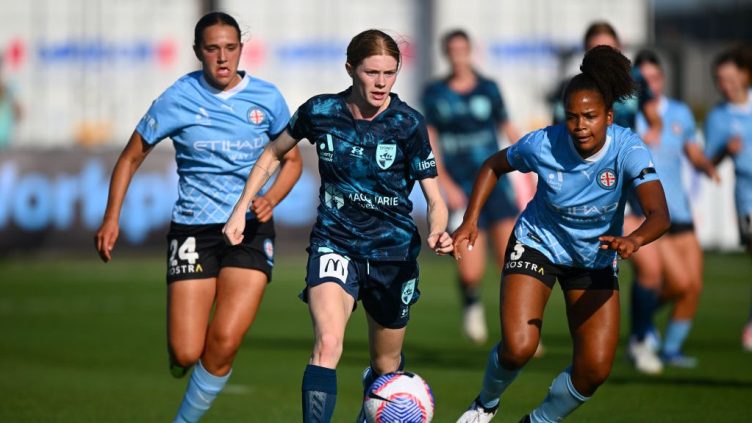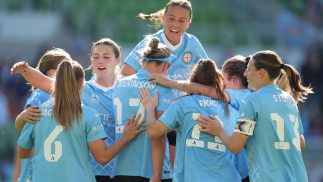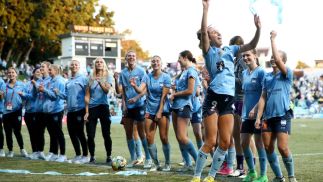Sam Kerr, Kyah Simon, Clare Polkinghorne, Lydia Williams and Tameka Yallop emerged and inspired the next generation when our domestic women’s league was born in 2008, writes David Davutovic.
Whether they knew it or not at the time, Australian football chiefs timed the birth of the W-League to perfection.
Earlier is usually better, and perhaps a star or two missed the chance at a pathway to international football, but the cohort of kids that emerged in 2008 was special.
VISIT KEEPUP’S WOMEN’S WORLD CUP HUB!
A baby-faced 15-year-old Perth Glory striker was running rings around defenders, Brisbane Roar had two rising stars keeping their veteran teammates honest, Central Coast’s ambidextrous sharpshooter was causing havoc in the box, Newcastle Jets had one of the most technically gifted stars emerging and Canberra United’s young keeper was proving impossible to score against.
The six could not have dreamed of going on to represent the Matildas at a home World Cup 15 years later.
Sam Kerr (Glory), Tameka Yallop (nee Butt) and Clare Polkinghorne (both Roar), Kyah Simon (Mariners), Emily van Egmond (Jets) and Lydia Williams (Canberra United) were the six, with many more going on to represent the Matildas.
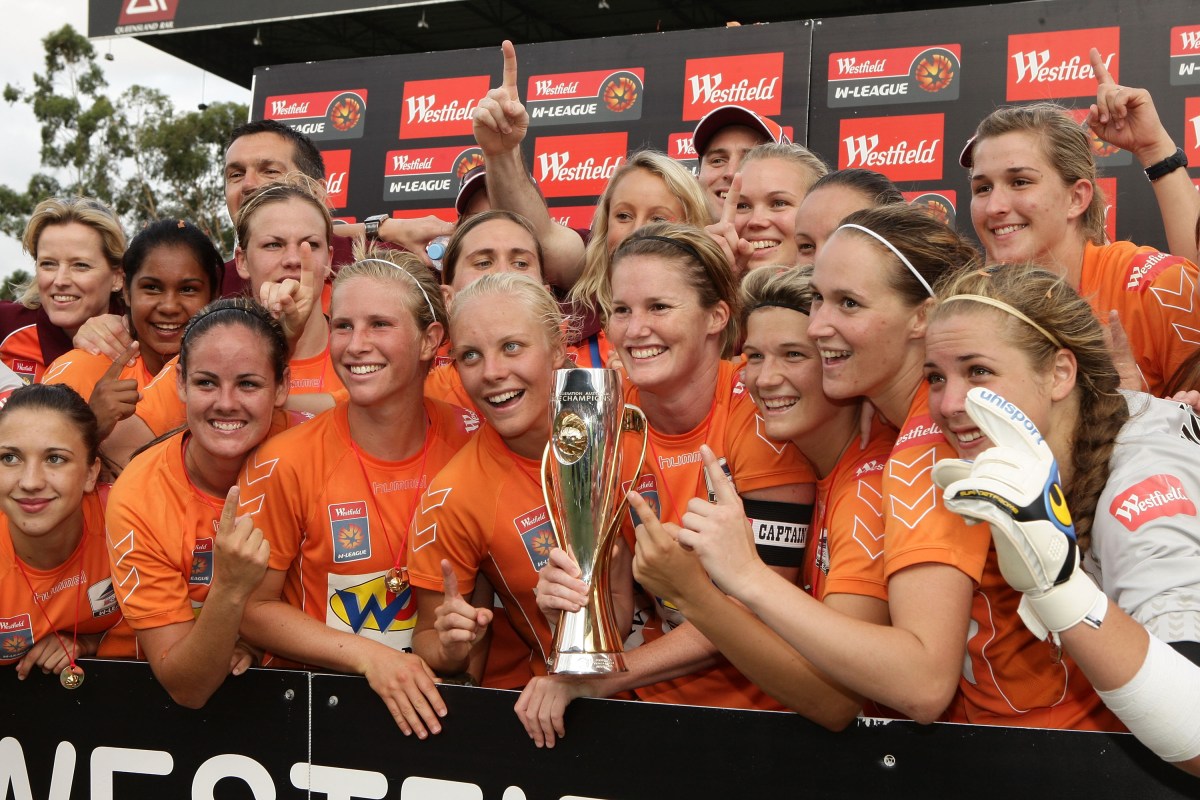
Brisbane Roar’s Elise Kellond-Knight and Canberra United’s Ellyse Perry both won the Young Player of the Year award, with the latter switching to cricket after the 2011 FIFA Women’s World Cup, whilst injury has truly robbed Kellond-Knight of a spot in a home World Cup squad.
And while they were talents before the the competition now known as the Liberty A-League started, the national platform raised their standards, and inspired those that followed.
“Those first few seasons were really important. For it to be the first sort of national league that we had and aligning it with the men’s was a huge step for us,” said Yallop, who scored in the first three Grand Finals.
KERR LATEST: 10-hour hotel stakeout sums up obsession with one little muscle
WWC ANALYSIS: ‘The gap has been bridged’
MUSCAT’S MARINOS: 180 mins & a Pep endorsement hint next step is inevitable
KU IN THE NPL: Extraordinary rise of NPL’s hottest team
BARBIERI: Why Gustavsson was right to keep Kerr secret
“Those first four or five seasons really created a platform to get a lot of the girls involved and see the game being played at home.
“It’s really grown from there and we have seen a lot of players go from this league go overseas and just keep improving. We’ve attracted some internationals with real quality too.”
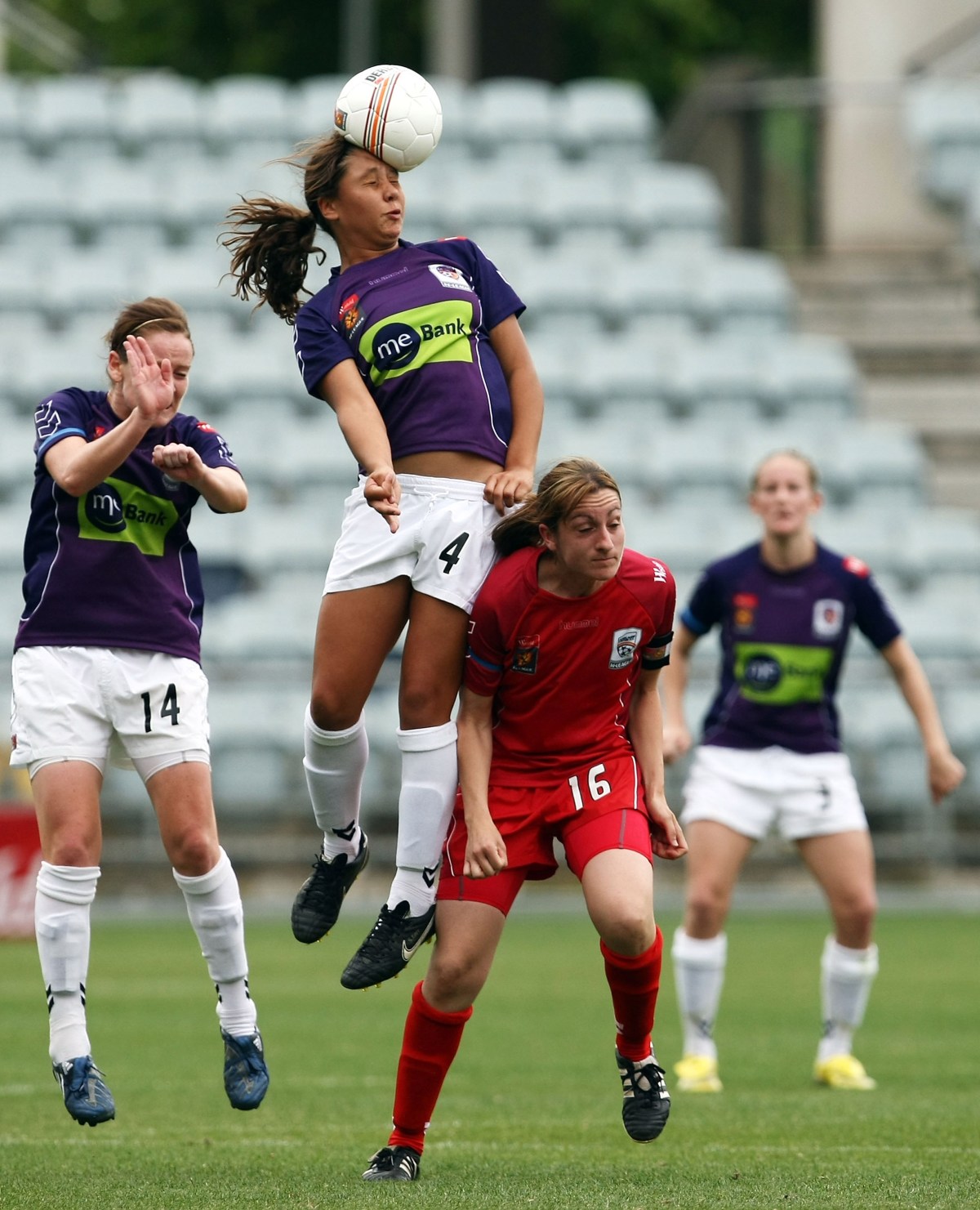
Three from the Matildas crop of 2023 followed in season two, with Steph Catley, Katrina Gorry (Melbourne Victory) and Aivi Luik (Brisbane) debuting.
Caitlin Foord trained with Central Coast Mariners before debuting at Sydney FC in 2010 with Alanna Kennedy, and Mackenzie Arnold made her Perth Glory debut in 2011, the same year Canberra United unearthed Hayley Raso.
That inaugural W-League season also proved to be the final campaign for Matildas great Alicia Ferguson, who recalled how the emerging crop of youngsters took the competition by storm.
“These youngsters turned up to Roar training, and I thought ‘wow, they’re the future’,” said Ferguson, who had Yallop, Polkinghorne and Kellond-Knight alongside her.
“I remember playing 2 v 2 then looking at my teammate going, ‘I think it’s time to retire’. Then I did my ACL in the semi-final and it was an easy decision.
“Sam Kerr played in the first season. You came up against Perth Glory and you had Sam and Lisa De Vanna running at you. Kyah Simon was scoring for the Mariners.
“I remember the first time I saw Caitlin Foord – I used to joke that I was president of the Caitlin Foord fan club. She was almost an overlapping right back, but she was everywhere.
“Then Steph Catley emerged on the left for Victory. It was so exciting.”
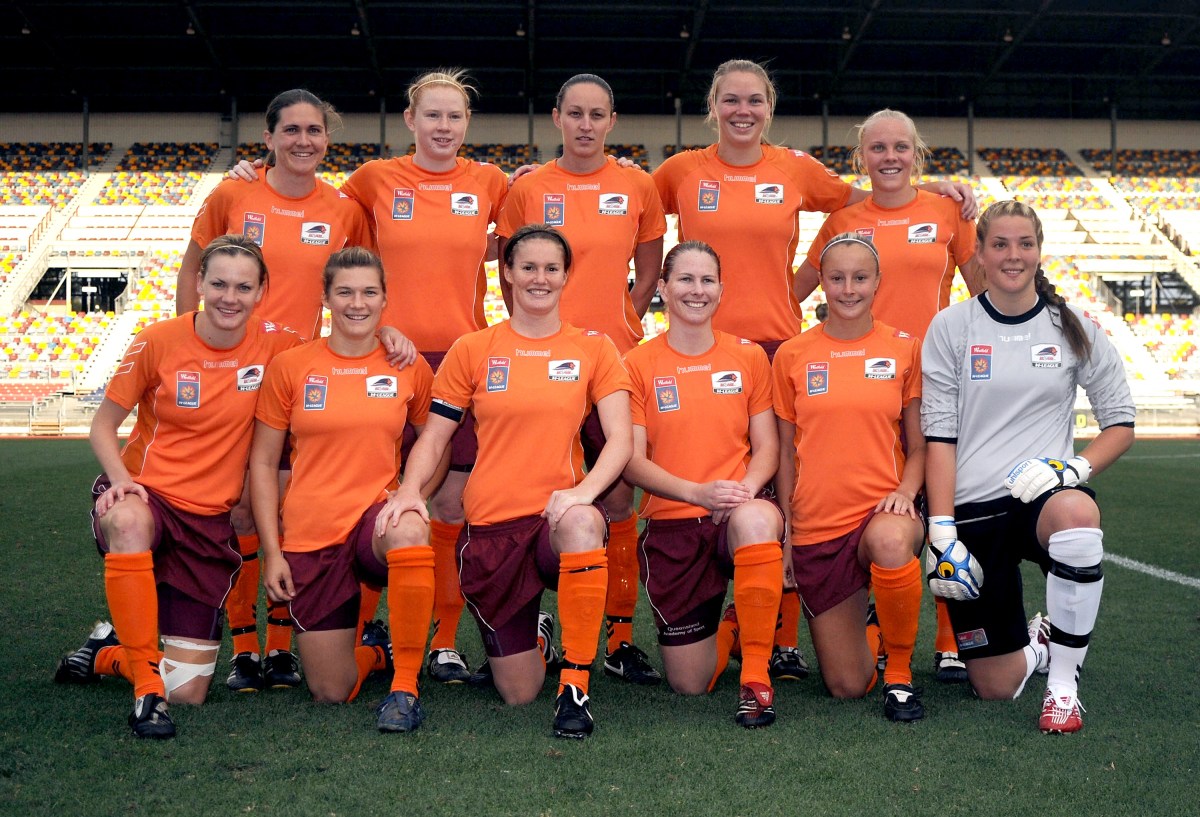
Ferguson played the bulk of her Matildas games during the Women’s National Soccer League era (1996-2004), when she played for Queensland Sting. She admitted the W-League came at the right time.
Kerr, van Egmond, Yallop, Foord, Simon, Kellond-Knight and Perry were all blooded by Matildas coach Tom Sermanni within years and most featured at the 2011 World Cup, where the youthful squad impressed, losing to Sweden in the Round of 16, when another young talent, Perry, scored in the 2-1 loss.
Exposure to top internationals helped, with the likes of Megan Rapinoe (Sydney FC), Jody Taylor (Victory and later City), Kim Little (City), Cathrine Paaske and Denmark teammate Julie Rydahl all arriving down under, with the latter (91 caps for Denmark) scoring the winning goal in the 2009 grand final.
“We just needed stability and consistency – every year there were different iterations. One year we were in Canberra playing everyday in a 10-day camp. Another year it might have been over a few months,” Ferguson said.
“The biggest difference is the everyday training environment. We trained everyday and played in boys comps. We always played, but that consistency of competition at senior level with women wasn’t there.
“The W-League was internationally competitive – the best players go test themselves abroad and we were attracting overseas players. It was a great competition and it was close.
“It was pretty high up. We attracted players from overseas, it was a physical league.”
Melissa Barbieri is one of the remaining Liberty A-League players from that inaugural season, and she recalled how the birth of the national competition provided a tangible and visible pathway for young females.
“I remember thinking how awesome it was that I didn’t have to pay for anything. Also that we weren’t playing 2-3 games in a weekend like we used to, and we had more training, so I didn’t have to top up,” Barbieri said.
“I remember being thankful that it was intense and challenging. The competition was great, it had a real national feel about it.
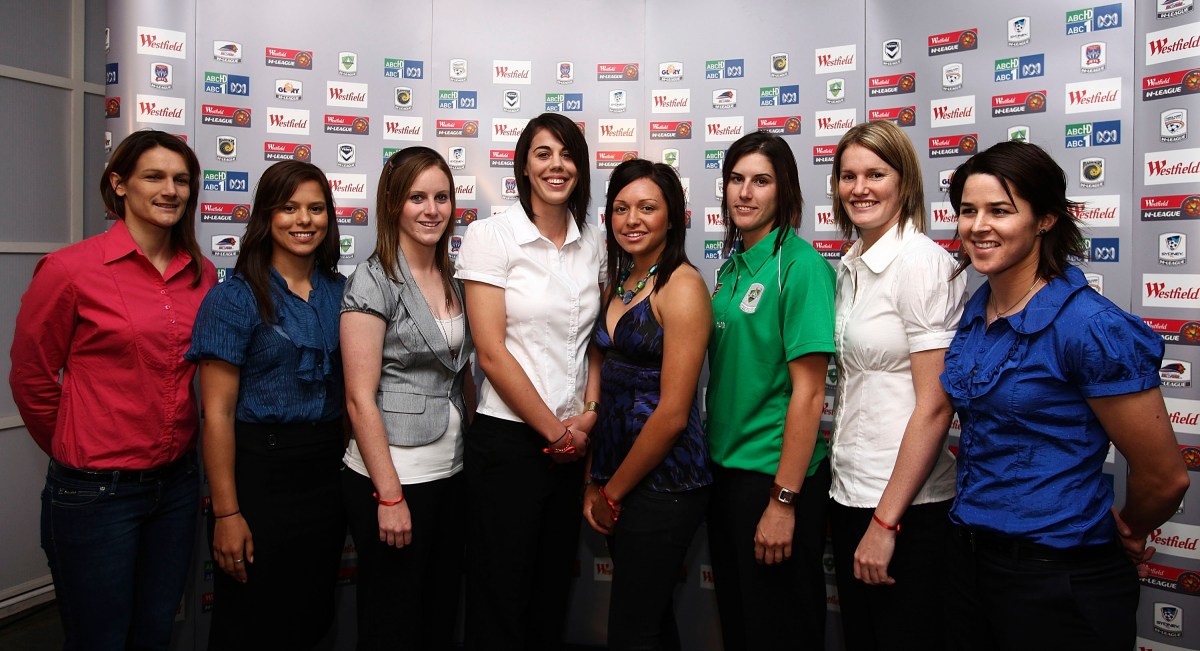
“It’s contributed massively to where we are today and where the Matildas are at. Beyond that we just had the state institute programs. It wasn’t just about what it gave us while the W-League was on, but it gave players outside of the W-League a benchmark to aim for.
“Some of us were playing for Australia, but people couldn’t see that. The W-League was tangible, and provided a level between where we were at and the national team.
“Between 2004-2008, there was nowhere for you to showcase your potential to (national selectors), it was very much the same players every time because there was no shop window.
“I’m unsure players were missed, but there was no motivation for players outside (the system).”
Barbieri has seen a host of Melbourne City men’s academy players progress through to the national teams and be sold overseas. She believes the Liberty A-League can follow a similar path with investment.
She also said stability was vital for young women, and cited recent Matildas breakout performer Clare Hunt as one who’s benefited from the A-Leagues.
“If we didn’t have the (Liberty) A-League Women’s, Clare Hunt would not be here (at the 2023 World Cup). Not because she was ever a poor player, she needed to time to address injuries and work through whatever she needed to work through,” Barbieri said.
“Asking players to do that overseas is very difficult. Females are built very differently – they need support, unity and family. That’s where the A-League is crucial.
“Just like any top league, we want to have academies where our young talent comes through. Like Barcelona, you have juniors all the way through to seniors, so you can stay there for your whole life.
“And like City’s men’s team, you can produce them and eventually sell. This will continue to make a huge impact for the Matildas.
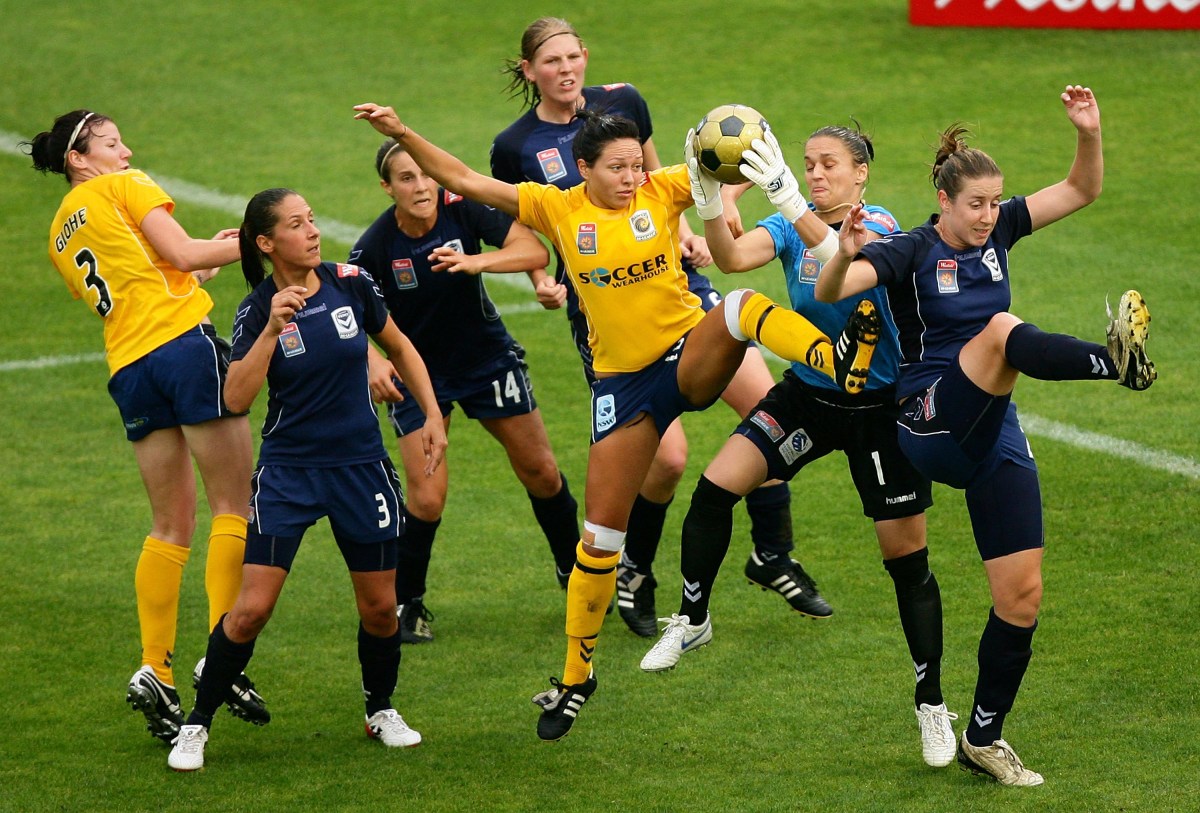
“We’re at a point now that there’s not enough positions in the Matildas squad and we need to continue raising the standard of the Liberty A-League. Every league has its development side, but we need a balance and we need to continue signing quality experienced players.
“Matildas are made by the A-League but we want many to stay in the A-League because we want it to be a dominant league.”
The recent women’s Euro exodus was not dissimilar to the evolution of Australia’s trailblazing domestic men’s competition, which started in 1977.
It was a decade or so later that players started moving abroad, with the likes of Frank Farina, Graham Arnold, Robbie Slater and Mark Bosnich transitioning from the NSL to Europe.
Whilst in both cases it has helped the respective national teams, the Liberty A-League remains a critical base.
This 2023 World Cup Matildas’ collective 1954 games and 409 Liberty A-League goals has provided a crucial platform to their campaign.
MATILDAS’ LIBERTY A-LEAGUE NUMBERS
Player Gms Gls
Clare Polkinghorne 152 16
Katrina Gorry 143 31
Tameka Yallop 139 58
Steph Catley 127 10
Lydia Williams 120 0
Kyah Simon 108 50
Caitlin Foord 106 34
Alanna Kennedy 106 14
Emily van Egmond 101 25
Sam Kerr 95 70
Mackenzie Arnold 93 0
Aivi Luik 88 9
Cortnee Vine 87 26
Hayley Raso 86 23
Clare Wheeler 79 4
Alex Chidiac 75 14
Ellie Carpenter 58 7
Kyra Cooney-Cross 57 13
Courtney Nevin 43 1
Clare Hunt 37 1
Charlotte Grant 34 0
Teagan Micah 13 0
Mary Fowler 7 3

